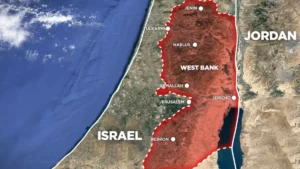Where does Israel Get Its Oil?
Israel, a small nation with a burgeoning economy, finds itself in a precarious situation in the ever-evolving global oil market. The reality is that the oil market is truly global, providing Israel with some maneuvering room even in challenging times. However, the effectiveness of a potential embargo would heavily rely on the participation of key oil suppliers, particularly Kazakhstan and Azerbaijan.
Iran has called for Muslim countries to impose an oil embargo on Israel.
National Games 2023 Medal Tally: Check The Complete List Of Winners
Does Israel have its own oil supply?
Israel has limited domestic oil reserves, and it does produce a small amount of crude oil. However, the domestic production is not sufficient to meet the country’s energy needs. As a result, Israel relies on oil imports to fulfill its energy requirements. To supplement its domestic production, Israel imports oil from various sources, making it largely dependent on foreign oil supplies to meet its energy demands.
Israel’s Diverse And Flexible Oil Imports
Israel is not reliant on Arab nations for its oil supply, utilizing a versatile network of suppliers. As indicated by Kpler, a data analytics company, Israel has been importing approximately 220,000 barrels of crude oil daily since mid-May, with its primary sources being two Muslim countries, namely Kazakhstan and Azerbaijan. Additionally, West African nations, particularly Gabon, have been significant contributors to Israel’s oil imports. Beyond this, Israel has diversified options for oil procurement, including the United States, a close ally, and Brazil, both of which have seen increased exports to the global market.
Israel’s Limited Domestic Oil Production
Israel possesses limited domestic oil reserves, which fall short of meeting its energy requirements. Although it produces a modest quantity of crude oil, the majority of its consumption is met through imports. Israel sources its oil from diverse outlets, exposing it to potential vulnerabilities in the event of disruptions in foreign oil supplies.
Israel’s Oil Imports: A Complex Network
Since mid-May, Israel has been importing approximately 220,000 barrels of crude oil per day. An intriguing aspect of this import is that nearly 60% of it originates from two majority Muslim nations. According to data from the analytics firm Kpler, these nations are none other than Kazakhstan and Azerbaijan. West African producers, mainly Gabon, also play a significant role in Israel’s oil supply network.
List Of Countries Supporting Israel
Diverse Supply Alternatives and U.S. Support
Despite the risk of a full-blown embargo by Muslim-majority nations, Israel stands on the cusp of diversification when it comes to oil supply. The United States, Israel’s steadfast ally, has emerged as a substantial additional supplier of crude in the global seaborne market. Furthermore, exports from Brazil, which have been steadily making their way to Israel, are on the rise.
Who Attacked First Israel Or Palestine 2023?
Challenges on the Home Front: Securing Oil Ports
While navigating the global oil market remains a complex task, Israel’s more immediate concern lies in securing its oil ports and adjacent waters. Israel possesses three crucial crude import terminals: Ashkelon and Haifa on the Mediterranean coast and Eilat on the Red Sea. The Ashkelon terminal, handling approximately 180,000 barrels daily, is of utmost importance, but its proximity to Gaza has led to periodic closures, most recently after a Hamas attack in October. Data from Kpler shows that no crude has been imported via the Red Sea terminal at Eilat since 2020, while flows into Haifa have averaged around 40,000 barrels per day.
Middle East Producers and Iran: A Minimal Role in Israel’s Oil Supply
Interestingly, Middle East producers have only played a minor role in Israel’s crude oil supplies. Iran, a prominent regional player, has had no presence in Israel’s oil market. This unique oil supply landscape underscores Israel’s adaptability and resilience in ensuring its energy security, even as geopolitical dynamics continue to shift.




 U.S. Department of State Launches $200 M...
U.S. Department of State Launches $200 M...
 India Joins 100+ Nations in Strong Stand...
India Joins 100+ Nations in Strong Stand...
 India Joins Trump’s Gaza Peace Board as ...
India Joins Trump’s Gaza Peace Board as ...








